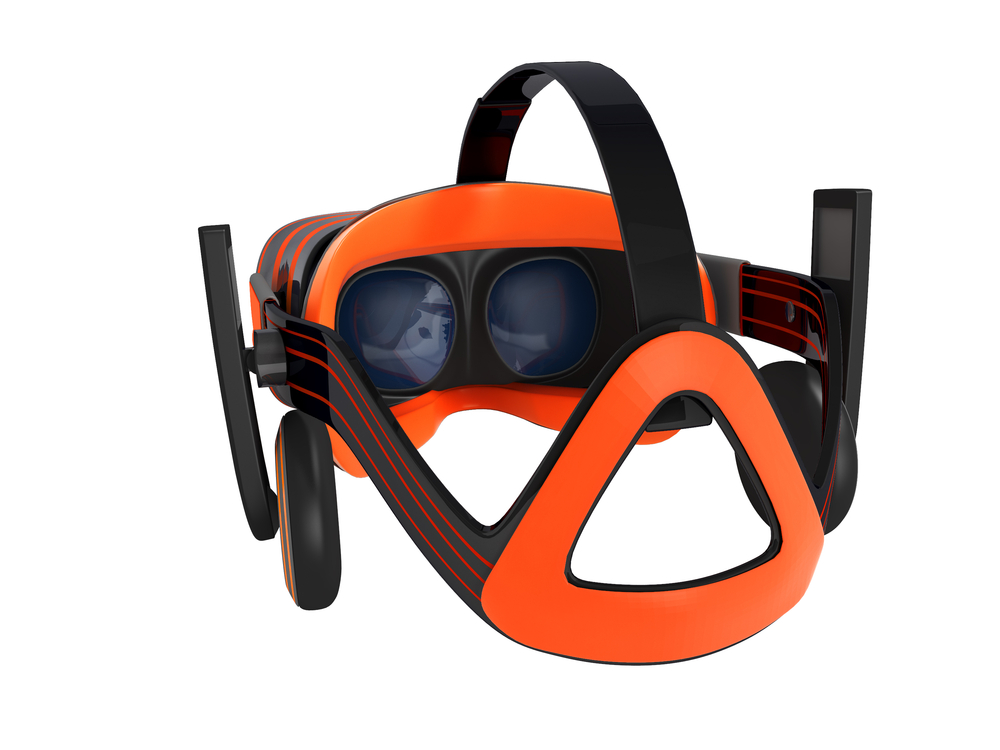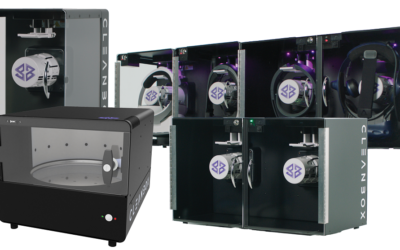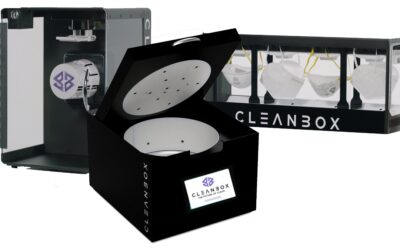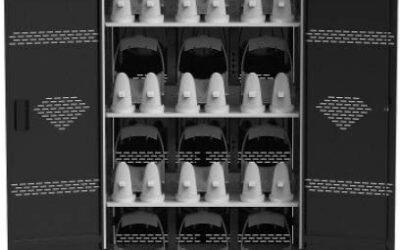During the pandemic, it became obvious that certain industries were at higher risk of exposure to contagion than others. In particular, the hospitality industry is exposed to a high volume of potential contagion every day from hotel guests and coworkers alike. Fortunately, by learning how to clean Oculus Lenses with Cleanbox, the hospitality industry can protect new hires during training and while on the job.
How the Hospitality Industry Can Protect New Hires From Contagion During Training
Hotels rely on a foundation of a good reputation, which means hospitality workers must be trained in how to proactively solve problems. Recently, Hilton has rolled out a new training protocol to help the employees learn how to problem-solve in a variety of scenarios.
Using VR technology with Oculus Lenses is one way to ensure hotel employees have adequate training to solve problems during check-in services, departure service, room service, breakfast service, and concierge services. VR training can teach hotel employees how to interact with hotel guests with empathy – and it can also protect new hires from contagion.
The Benefits of VR Training
Perhaps the biggest benefit of using VR technology to train employees is the ability to implement social distancing protocols. Because new hires can receive curated training during augmented reality classes, training can be completed more quickly and safely.
However, with multiple people using VR/AR headsets for training purposes, the hospitality industry needs to protect new hires by correctly decontaminating the shared electronic devices. Cleanboxe can efficiently and effectively reduce bacteria and viruses on electronic surfaces because UV technology is so effective that it can kill up to 99.999% of contagions.
Other Ways to Protect New Hires
In addition to decontaminating shared electronic devices used for training, there are other ways the hospitality industry can protect new hires. For example, the hospitality industry can follow public health mandates and adopt sanitation guidelines that are recommended by OSHA, CDC, and WHO.
Public Health Mandates
When people are working in close quarters, it’s important to follow public health mandates. For example, the hospitality industry should encourage employees to wear face masks to limit the spread of possible contagion, including during training. Public health mandates may also include advice to limit close contacts, such as not sharing utensils, drinks, or clothing.
Public health mandates will also include directives on how to wash hands and other frequently touched surfaces. By enforcing these mandates, hotels can protect new hires during training and on the job.
Sanitation Guidelines
Sanitation guidelines for the hospitality industry are very strict, particularly because the risk of spreading contagion is high at hotels that do not follow these cleanliness standards. For example, there are health standards related to sanitizing bed linens, carpets, utensils, and other objects used by hotel guests. Following these sanitation guidelines correctly will protect employees and guests from possible contagion.
What Can a Cleanbox Decontaminate?
Using decontamination boxes during the hiring process can protect the safety of experienced employees and new hires alike. Various Cleanbox Technology products can be used to decontaminate many items for personal use. Between the CX Series, the OmniClean, and Clean Defense System, hotels can use advanced UV and UVC LED technology to decontaminate surfaces that are at higher risk of spreading contagion.
VR Oculus Lenses
When VR Oculus Lenses are being used for employee training, it’s important to decontaminate these virtual reality headsets between each use. This will protect new hires from spreading infections such as staph infections, conjunctivitis, COVID-19, and other potential bacterial or viral outbreaks. Decontaminating VR headsets is essential when one device is shared between multiple people.
Face Masks
Hotels that enforce mask-wearing may also be interested in decontaminating masks between uses. In particular, cloth masks, N95, and KN94 masks can all be decontaminated between uses to reduce face mask waste.
Headsets and Earphones
The hospitality industry may also use headsets and earphones, particularly the cleaning staff, front desk staff, and security staff. Because these personal devices may be shared among multiple people, it’s important to decontaminate these via devices between uses.
Electronic Devices
Hotels may also have devices that are shared among employees, such as tablets, computer hardware, and other technology. Electronic devices can hold a great amount of bacteria and viral particles, so it’s important to decontaminate these devices frequently to reduce the risk of spreading contagion among employees and guests.
How to Clean Oculus Lenses
Learning how to clean Oculus Lenses with advanced UV LED technology is simple. The general protocol is to select Oculus Lenses, place the lenses into the decontamination box, select a 60-second clean cycle, and then use the headset. The cleaning protocol can be used before and after each use to ensure no germs are contaminating the VR lenses.
Why Is UV LED Technology Effective?
Cleaning with light seems like a science-fiction fantasy, but science has well documented research that supports the germicidal effects of light. For 140 years, it has been known that exposure to UV rays in sunlight can kill germs, bacteria, and viruses. This is why one of the old-school methods to decontaminate linens is to allow linens to dry in the sunlight.
UV LED technology with decontamination boxes simplifies this process and makes it more convenient to clean electronic devices, glasses, and other shared personal items. Specifically, UV LED technology is effective because it can destroy the genetic material of the contagion and clean the entire item.
Destroy DNA and RNA
Just like any other living organism, bacteria and viruses are made with genetic material. If you want to effectively destroy contagion, you must be able to destroy the DNA and RNA strands that allow the virus or bacteria to replicate and mutate. Without destroying this genetic material, decontamination is not effective and the contagion maintains the ability to spread.
However, the shorter light wavelengths found in ultraviolet LED light is capable of completely destroying DNA and RNA strands on all surfaces. This is why decontamination boxes are 99.999% effective for killing bacteria and viruses.
Clean Entire Item
Using decontamination boxes can also clean the entire item. While alcohol-based wipes are capable of destroying germs on hard surfaces, such as metal, plastic, and glass, there are many smaller areas on electronic devices that cannot be reached with alcohol-based wipes. Because UV LED cleaning technology can reach every minuscule crack in an electronic device, the cleaning ability of the decontamination box is much more thorough.
Furthermore, alcohol-based wipes can potentially damage the soft material on shared electronic devices. For example, the foam padding, silicone, and leather that are used on headsets, earphones, and virtual reality lenses can all be damaged by repeated exposure to alcohol-based cleaning wipes. Additionally, alcohol-based cleaning wipes may not be able to clean soft surfaces effectively to remove all traces of bacteria and viruses.
Hotels such as Hilton are approaching training for new hires in novel ways. With the use of VR scenarios, new hires can receive more thorough and empathetic training that allows them to problem-solve better. However, because sharing VR Oculus Lenses can increase the risk of spreading contagion, it’s important for the hospitality industry to learn the proper way to decontaminate shared electronic devices. Contact Cleanbox Technology to register for a 15-minute online demo today.





